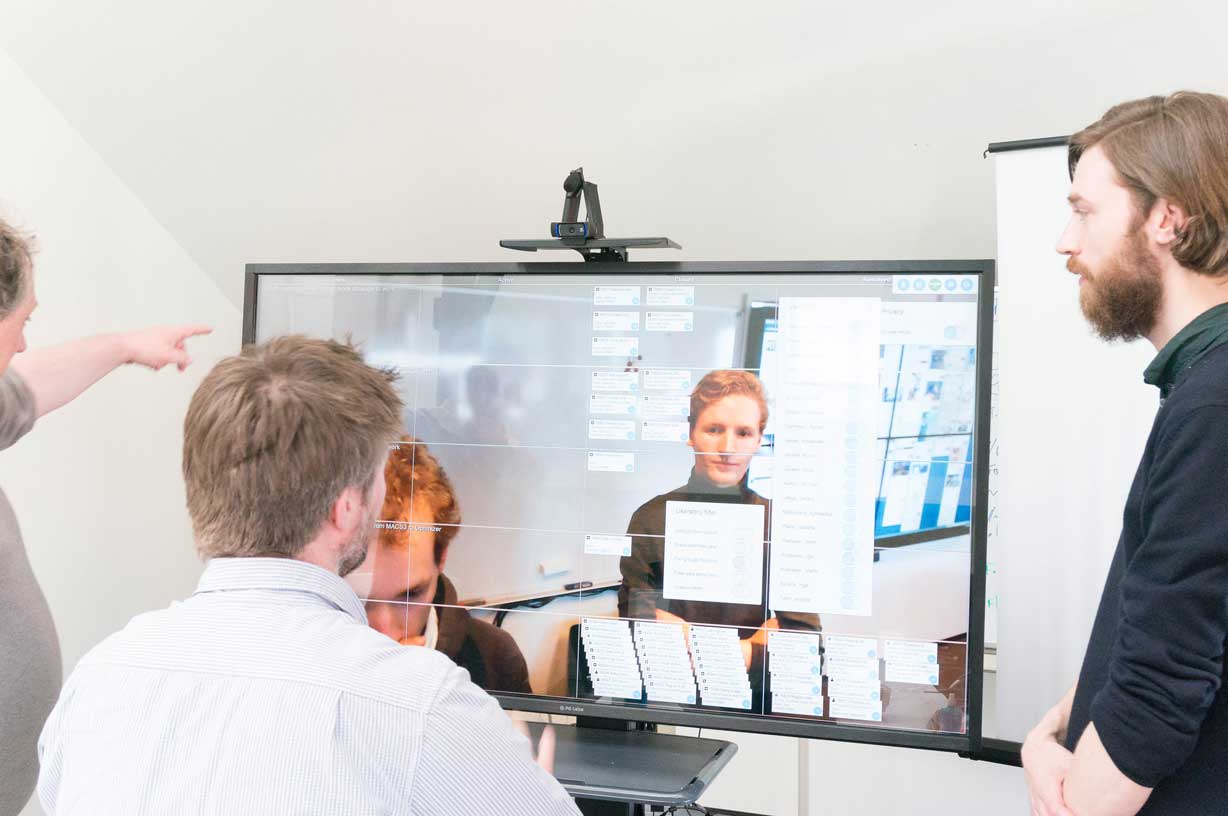Over the last couple of days, I’ve been visiting Cecilia Mascolo and Alastair Beresford at Cambridge University, Fahim Kawsar at Nokia Bell Labs, and Nic Lane at Samsung AI Lab in Cambridge.
Continue reading “Visiting Cambridge University”Personal Health Technology – Opportunities & Challenges
Today I gave a talk at the Danish IT organisation called “Dansk IT“, which is a professional organisation for IT professionals in Denmark.
Continue reading “Personal Health Technology – Opportunities & Challenges”Human-Computer Interaction in Health Technology
Today, I was giving a talk on ” Human-Computer Interaction in Health Technology” for the Steno Diabetes Center in Copenhagen as part of their “Steno Rounds” series of talks.
Continue reading “Human-Computer Interaction in Health Technology”
Visiting the HCI Group at the University of Konstanz
Continue reading “Visiting the HCI Group at the University of Konstanz”
UBISS 2018
I was part of organizing the 9th International UBI PhD Summer School 2018 (UBISS 2018) in Oulu, Finland, June 4-9, 2018.
I was running Workshop B on Wearable and Mobile Health and Behaviour Tracking together with Denzil Ferreira. This was a super nice experience and I enjoyed spending a week diving into technical details on sensing frameworks for mobile sensing, especially the AWARE Framework done by Denzil (while I did tell him that I did the original AWARE Architecture back in 2004 😉 ). Also, getting to know Timo Ojala (or “Timppa” ??) was really a pleasure.
Open PhD position
Applications are sought from candidates interested in pursuing a PhD focused on the design of new technologies to support mental health interventions for young people.
Application deadline: 1st April 2018
Location: Technical University of Denmark (DTU)
Giving a talk at the new Center for Digital Health @ Lancaster University
I was visting my old friend and phd student Steven Houben the other day who invited me to connect up with the Ubicomp crew at Lancaster University — and in particular to meet Sumi Helal, who is now appointed Chair in Digital Health.
While being there, I gave a talk. The title, abstract, and slides are available here.
Title: Personal Health Technology — Opportunities and Examples
 Abstract: In this talk I will provide an overview of the research done at the Copenhagen Center for Health Technology (CACHET). I will provide the background of this research, define what we mean by personal health technology and how this related to other types of health technology, and come with concrete examples from our different research projects. In particular, I will use my own research into the use of smartphones in the monitoring and treatment of mental health, as an example.
Abstract: In this talk I will provide an overview of the research done at the Copenhagen Center for Health Technology (CACHET). I will provide the background of this research, define what we mean by personal health technology and how this related to other types of health technology, and come with concrete examples from our different research projects. In particular, I will use my own research into the use of smartphones in the monitoring and treatment of mental health, as an example.
Keep surfing! My new website is online…
I finally managed to move content from my old ITU homepage to this new WordPress-based homepage. I’m not sure I will add a lot of blogs or news here – after all, I don’t think people will read it anyway. But it may work as place for putting information on my research, in particular the projects that I am – and have been – involved in, as well as the technology I’ve been part of designing, implementing, and evaluating over the years. This is of course my version of the research done; on these pages I will focus on my work and contribution within the overall projects.
I will also provide information on my teaching, especially provide guidance on how to do a (successful) MSc. Thesis with me at DTU Compute.
NexGSD – Next Generation Technology for Global Software Development
The software development paradigm is changing with the rise of geographically distributed, global software development (GSD). Increasingly, organizations shift all or part of their software development offshore. Several studies show that compared to co‐located projects, GSD projects are more likely to be unsuccessful due to geographical, temporal, and cultural distances, which hampers close collaboration.
Continue reading “NexGSD – Next Generation Technology for Global Software Development”
Distributed SCRUM Board
The Distributed SCRUM Board — or just dBoard — is a digital Scrum Board for distributed Agile software development teams . The dBoard is designed as a ‘virtual window’ between two Scrum team spaces. It connects two locations with live video and audio, which is overlaid with a synchronized and interactive digital Scrum board, and it adapts the fidelity of the video/audio to the presence of people in front of it.
Continue reading “Distributed SCRUM Board”








